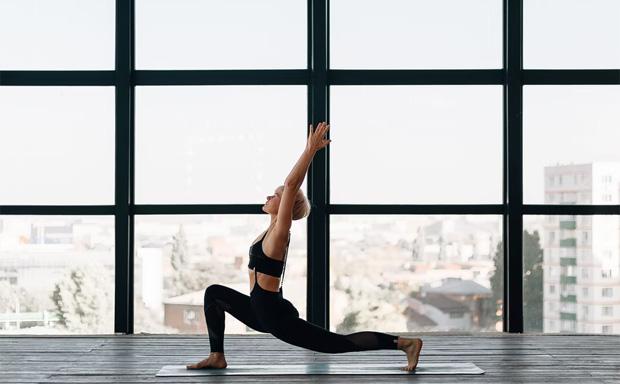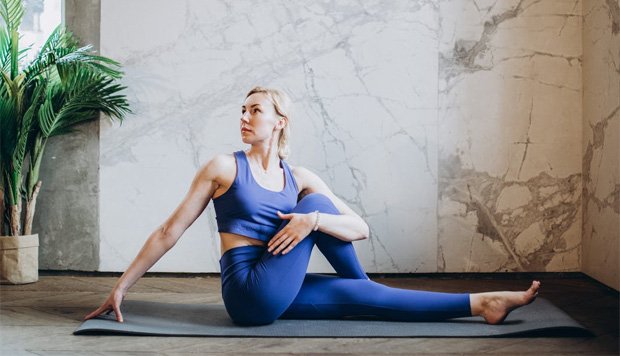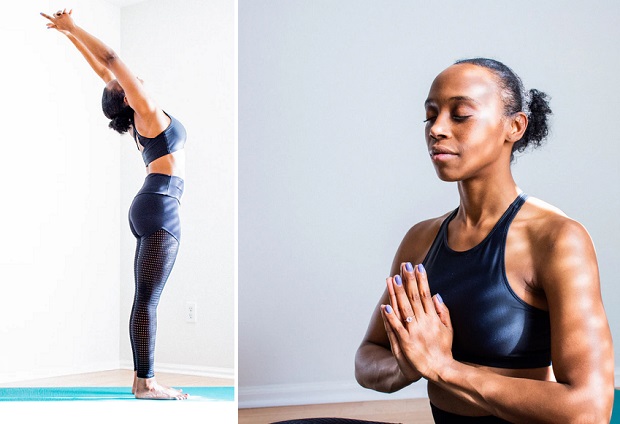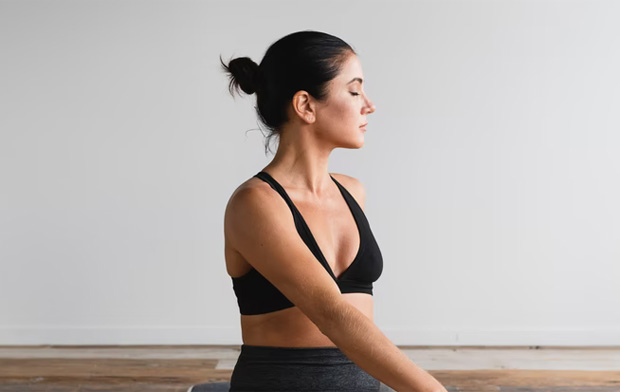The Power of Yoga on Addiction

The Power of Yoga on Addiction
Recovering from an addiction to drugs or alcohol is a long and difficult process. It can feel like an insurmountable mountain to climb but having the right tools and support can make it easier.
Yoga is being used more frequently for addiction recovery as there is evidence that it can improve both physical and emotional wellbeing and reduce relapse triggers such as stress. It is now one of the most widely used holistic treatment methods in alcohol and drug rehabilitation centres.
- What is Addiction?
Some people still believe the stigma surrounding addiction that only people who are weak willed will become and remain addicted to substances. However, this is an outdated and scientifically flawed view. Addiction is a chronic brain illness for which there are risk factors that increase your chances of it developing. Will power alone will not prevent you from becoming addicted or lead you to live a sober life once you have become addicted.
Risk factors for addiction include genetics, childhood neglect or abuse, and being exposed to drugs in your environment. It is progressive and may develop over many years; for example, you could start by experimenting with your friends as a teenager. Social drinking or drug-use then develops into something that you start to do alone and more frequently.

- What is Yoga?
Yoga is an ancient Indian practice which aims to control and still the mind. It uses physical, mental, and spiritual practices to achieve this goal, though modern yoga tends to be focused on physical practices. These physical postures help you to learn how to connect your mind, body, and breath, to gain self-awareness, and focus your attention inward.
Yoga is not a miracle cure for addiction. Given the complexity of addiction, it requires a variety of treatments. Yoga is a powerful complementary practice alongside traditional techniques such as talking therapy, family therapy, and support groups.
- Benefits of Yoga
Studies have shown that yoga can be greatly beneficial when it comes to dealing with stress, anxiety, and depression among a host of other things. One study compared the effects of walking versus doing yoga for sixty minutes, three days a week, for a period of twelve weeks. Results showed that those who did yoga had a greater improvement in mood and anxiety compared to those who walked.

- Stress
Stress is both a risk factor for causing addiction and a common trigger for relapse. Relapse rates following rehabilitation may be as high as seventy percent so dealing with relapse triggers during your recovery is extremely important.
Yoga has been shown to regulate stress hormones such as adrenaline and cortisol as well as switch on and off genes that are linked to stress and immune function. A study showed that people who do yoga for twenty minutes per day for eight weeks have substantial changes in their gene expression.
- Physical Effects
Addiction can cause you to lose your connection with your body as it numbs your senses. Yoga can help you to rebuild this as it focuses on listening to your body. As you continue to practice yoga, you will notice changes in your energy as your strength and stamina build and as you lean into your emotions and the feelings in your body rather than escaping from yourself and your physical sensations.
Yoga can also help to deal with physical pain which was caused by your addiction. It is common for those who struggle with addiction to experience physical pain such as backache or muscle soreness. As you recover, you may also experience withdrawal symptoms including muscle and joint aches. Yoga can help as you learn how to move your body healthily and build strength so that your body can protect itself. By being more present in your body, you will be more aware of where your pain is coming from and what movements will help to manage this pain.

- Sleep
It is possible that you will struggle with insomnia after you quit alcohol or drugs. This can be part of the withdrawal symptoms, both acute and post-acute. If you suffer from post-acute withdrawal symptoms, these can last for months and even a year or so. Therefore, having a practice which helps to deal with insomnia might be extremely beneficial.
Yoga provides downtime for the nervous system and for your mind. It gets you into a state of mind where your thoughts are not running away with you so that you can fall asleep easier. It is also known that physical exercise improves sleep quality. Improved sleep will lead to increased energy and reduced irritability. Increased energy may help you to stay motivated on your road of recovery while reduced irritability could help to prevent relapse.
- Emotional Effects
It is common to use drugs and alcohol to escape from uncomfortable feelings. These are also feelings which can cause a relapse. For example, someone who has remained sober for five years may relapse when a loved one passes away because they cannot deal with the grief of their loss.
Yoga can help you to build tolerance for uncomfortable feelings and provide you with a healthy alternative. Practising yoga requires you to acknowledge difficult feelings in a safe space. You are taught to access a peaceful inner state in which you are mentally prepared to deal with difficult emotions.
Your body can also hold and trap feelings. Yoga can release these feelings without you even understanding where they are coming from and why you are feeling them. You will learn that emotions are impermanent, so while you embrace and accept negative emotions, you do not dwell on them but instead let them pass.

- Self-Control and Self-Awareness
There is evidence that yoga stimulates the development of the prefrontal cortex. This is an area of the brain that is responsible for self-control and is compromised by substance use. By stimulating this part of the brain, you may be able to have more control over your actions, staying mentally strong and focused on your recovery goals.
Greater self-awareness caused by practising yoga can also help you to recognise cravings early. Relapse starts with emotional and mental relapse before you physically take a substance. If you are practising yoga and are more in tune with yourself, you may be able to recognise signs of emotional and mental relapse and therefore be able to prevent yourself from physically relapsing.
- Yoga and Your Addiction Recovery
Holistic treatments are becoming more common in drug and alcohol rehabilitation centres. Yoga is among the most common of these holistic practices. It can be used during detox to ease discomfort but also during the time following this initial treatment. Many centres will now give you the option to do yoga as part of your recovery and you can supplement this with home practices by following YouTube channels and apps.
Guest Article.





